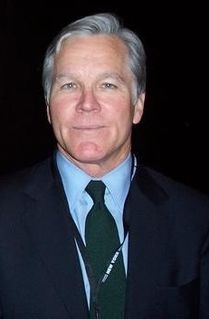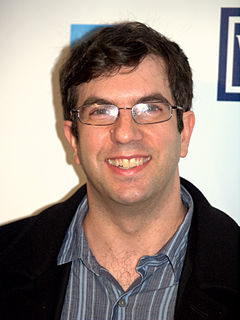A Quote by Helen Fisher
Along with our many human propensities, we evolved a huge cerebral cortex with which we make decisions.
Related Quotes
So, you can define emotions very simply as the process of perceiving what is going on in the organs when you are in the throws of an emotion, and that is achieved by a collection of structures, some of which are in the brain stem, and some of which are in the cerebral cortex, namely the insular cortex, which I like to mention not because I think it's the most important, it's not.
There is no other species on Earth that does science. It is, so far, entirely a human invention, evolved by natural selection in the cerebral cortex for one simple reason: it works. It is not perfect. It can be misused. It is only a tool. But it is by far the best tool we have, self-correcting, ongoing, applicable to everything.
We are part of nature, a product of a long evolutionary journey. To some degree, we carry the ancient oceans in our blood. … Our brains and nervous systems did not suddenly spring into existence without long antecedents in natural history. That which we most prize as integral to our humanity - our extraordinary capacity to think on complex conceptual levels - can be traced back to the nerve network of primitive invertebrates, the ganglia of a mollusk, the spinal cord of a fish, the brain of an amphibian, and the cerebral cortex of a primate.
We live in the Age of the Higher Brain, the cerebral cortex that has grown enormously over the last few millennia, overshadowing the ancient, instinctive lower brain. The cortex is often called the new brain, yet the old brain held sway in humans for millions of years, as it does today in most living things. The old brain can't conjure up ideas or read. But it does possess the power to feel and, above all, to be. It was the old brain that caused our forebears to sense the closeness of a mysterious presence everywhere in Nature.
Let me tell you, though: being the smartest boy in the world wasn’t easy. I didn’t ask for this. I didn’t want this. On the contrary, it was a huge burden. First, there was the task of keeping my brain perfectly protected. My cerebral cortex was a national treasure, a masterpiece of the Sistine Chapel of brains. This was not something that could be treated frivolously. If I could have locked it in a safe, I would have. Instead, I became obsessed with brain damage.
If you produce yourself and you're working in a band, there's certain compromises everyone has to make, because it's a democracy and you have to cater to each other's feelings. When you have a producer, you have this objective ear that's not worrying about protecting anybody's feelings, so he's just making hard decisions based on what works and what doesn't, which was huge for us. I don't think we'd be able to make those decisions by ourselves.
What distinguishes our species is thought. The cerebral cortex is in a way a liberation. We need no longer be trapped in the genetically inherited behavior patterns of lizards and baboons: territoriality and aggression and dominance hierarchies. We are each of us largely responsible for what gets put in to our brains. For what as adults we wind up caring for and knowing about. No longer at the mercy of the reptile brain we can change ourselves. Think of the possibilities.
It is now generally accepted that the roots of our ethics lie in patterns of behavior that evolved among our pre-human ancestors, the social mammals and that we retain within our biological nature elements of these evolved responses. We have learned considerably more about this responses, and we are beginning to to understand how they interact with our capacity to reason.


































